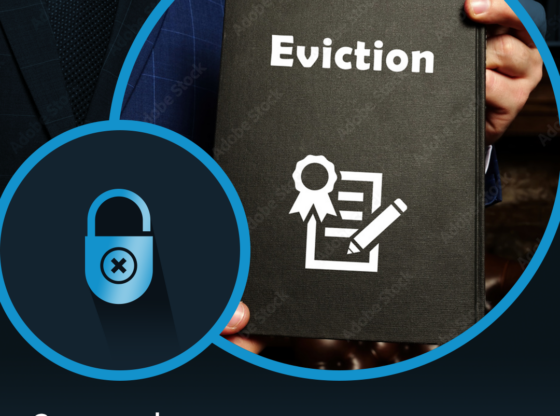Enforcing A Suspended Possession Order
A suspended possession order, is an order for possession of property, that is suspended on specific terms set out in the order. The consequence of this is that the landlord cannot enforce th order, unless the terms upon which it has been suspended have been breached.
The Court of Appeal found, in the case of Cardiff City Council v Lee ((2016) EWCA Civ 1034) that all landlords issuing a warrant for possession following breach of a suspended order for possession needed to first obtain permission of the Court before the warrant could be issued to enforce the order.
For a short period of time landlords were required to make an application to the Court to seek permission to enforce the order for the breach of the terms.
However, the Civil Procedure Rules were subsequently updated. The Request for Warrant of Possession (N325) and Request for Re-issue of Warrant (N445) forms requiring landlords to certify breach of the suspended order and since then these forms accompanied by a rent statement have been put before District Judges for permission to issue, or re-issue, the warrant for possession.
A warrant of possession is used to enforce a judgment or order for the possession of land. This includes possession orders made against tenants.
If occupiers do not voluntarily leave the land, an Enforcement Agent working for the County Court has powers under the warrant to evict them. Enforcement Agents are also known as bailiffs.
Alternatively the landlord can apply to the High Court for a writ of possession to be enforced by a High Court Enforcement Officer (HCEO). This is usually quicker.
On 1 October 2018, the Civil Procedure Rules were amended, and in particular part 83(2)(e) of the CPR was amended to add the words ‘(other than where non-compliance with the terms of suspension of enforcement of the judgment or order is the failure to pay money)’.
Part 83(2) will therefore say, from 1 October 2018, that a warrant must not be issued without the permission of the court where…(e) under the judgment or order, any person is entitled to a remedy subject to the fulfilment of any condition, and it is alleged that the condition has been fulfilled (other than where non-compliance with the terms of suspension of enforcement of the judgment or order is the failure to pay money).
The effect of this amendment is that landlords will no longer require the permission of the Court to issue or re-issue a warrant for possession for breach of a suspended order for possession made on the basis of rent arrears and suspended on terms that the tenant pays the rent and an amount towards the arrears.
It should be noted that permission will still be required where the possession order is suspended on other terms, such as to grant access or not to cause a nuisance or to comply with other specific contractual or implied terms of the tenancy agreement.
It is therefore important to note that when enforcing a suspended possession order, the warrant that is issued should be accompanied by a rent statement, certified by the landlord. If a possession order has been suspended on terms other than relating to the payment of rent, the landlord will need to issue an application using N244 form requesting the Court to grant permission to enforce the suspended possession order. In this instance, such application would need to be supported by evidence of the breach of the terms of the suspended order. In most cases, such application would need to be dealt with at a hearing.
There are other circumstances in which permission to enforce a possession order may be required:
- six or more years have elapsed since the possession order was made,
- the possession order was obtained against trespassers and the application for the issue of a warrant is made more than three months after the date of the order,
- a change has taken place, by death or otherwise, in the parties entitled to enforce the possession order, or those liable to have the possession order enforced against them, or
- the possession order is against a deceased person and the warrant is sought against their executors or administrators.
The landlord must apply for permission using form N244. When the court gives permission, the landlord should then make a separate application for the warrant itself using court form N325.
Whether a hearing would be required for an application to seek permission to enforce a suspended possession order would depend in the individual circumstances of each case.
If you require advice in relation to enforcing a suspended possession order, you can contact our experts for legal advice and assistance.










